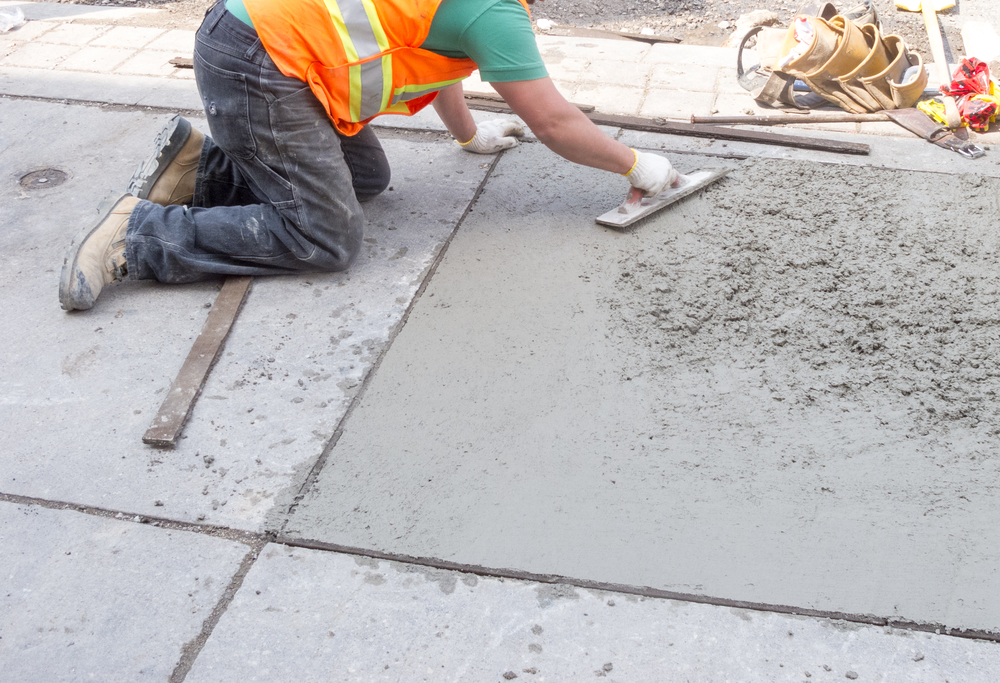Concrete floors are a durable and cost-effective choice for many homes and commercial spaces, but over time, they can develop cracks, chips, and other forms of damage. Ignoring these issues can lead to further deterioration, safety hazards, and even costly repairs down the road. Here’s why repairing your concrete floor is crucial:
1. Prevents Further Damage
Concrete is a strong material, but when cracks or chips appear, they can worsen over time due to factors like water infiltration, temperature fluctuations, and daily wear and tear. Moisture can seep into the cracks, causing them to expand, which may weaken the structural integrity of the floor. Repairing these issues early on prevents further damage and ensures your floor remains stable.
2. Maintains Aesthetic Appeal
A damaged concrete floor with visible cracks or stains can detract from the overall aesthetic of a space. Whether it’s in your home, garage, or business, an unattractive floor can affect the appearance of the entire room. Repairing your concrete floor restores its appearance, making the space look cleaner and more appealing.
3. Improves Safety
Cracks, uneven surfaces, and exposed rough areas can create tripping hazards, which can lead to accidents or injuries. For both residential and commercial properties, safety should always be a priority. Repairing your concrete floor eliminates potential risks, making the space safer for everyone.
4. Increases Property Value
A well-maintained floor adds value to your property. Whether you’re planning to sell your home or enhance the look of your business, a repaired concrete floor can give a clean, polished impression to potential buyers or customers. On the other hand, visible damage can negatively impact the perceived value of your property.
5. Improves Durability
Concrete floors are known for their longevity, but that lifespan can be reduced if damage is left unaddressed. Repairing cracks and gaps ensures that the floor continues to provide reliable support, resist wear and tear, and maintain its strength. Regular maintenance and repair increase the overall lifespan of the floor, saving you money on future replacement costs.
6. Prevents Water Damage
When cracks or gaps in your concrete floor allow water to seep through, it can lead to significant problems such as mold growth, erosion, and structural weakening. Water damage can be especially concerning in basements, garages, and exterior surfaces. By repairing your concrete floor, you can seal out moisture and protect your property from the harmful effects of water.
7. Enhances Functionality
Cracks and uneven floors can cause issues with the way furniture sits, machinery operates, or even with the installation of flooring materials like tile or carpet. A smooth, level surface is essential for the proper function of these items. Repairing your concrete floor ensures it provides a solid foundation for whatever is placed on top.
8. Saves Money in the Long Run
Repairing minor damage early on is much more cost-effective than letting issues worsen and requiring major repairs or even full floor replacement later. Small, simple repairs can be done at a fraction of the cost of extensive repairs, preserving the lifespan of your floor and reducing the need for larger investments down the line.
Conclusion
Repairing your concrete floor is a smart investment that offers long-term benefits. It prevents further damage, enhances the appearance and safety of your space, increases property value, and saves you money. Whether you’re dealing with minor cracks or significant damage, addressing concrete floor issues promptly ensures the durability and functionality of your floor for years to come.





